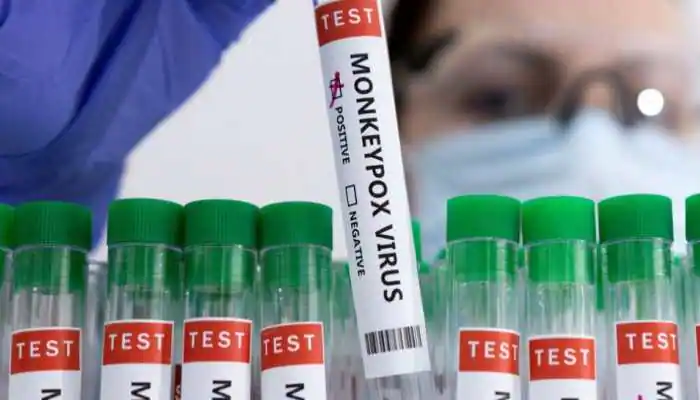“This is something we definitely need to take seriously. We don’t know the scope and the potential of it yet, but we have to act like it will have the capability of spreading much more widely than it’s spreading right now Monkeypox more seriously,” Dr. Anthony Fauci told CNN Saturday.
Former US Food and Drug Administration (FDA) Commissioner Dr. Scott Gottlieb warned it may be too late to control and contain the virus.
“I think the window for getting control of this and containing it probably has closed.
If it hasn’t closed, it’s certainly starting to close,” Gottlieb told CBS’ Margaret Brennan Sunday on “Face the Nation.”
Monkeypox has been detected throughout most of the US, except for a handful of states, according to the US Centers for Disease Control and Prevention (CDC). The states with the most cases include New York, California, Illinois and Florida.
Fauci, who is director of the National Institute of Allergy and Infectious Diseases.
And President Joe Biden’s chief medical adviser, told CNN’s Laura Coates the numbers are “very likely an undercount.”
“Whenever you have the emergence of something like this, you are always probably looking at what might be — might be, we don’t know — the tip of the iceberg, so that’s the reason why we’ve got to get the testing out there in a much, much more vigorous way,” Fauci said Saturday.
Gottlieb echoed the need for testing on Sunday.
“We’re probably detecting just a fraction of the actual cases because we had, for a long time, a very narrow case definition on who got tested and by and large, we’re looking in the community of men who have sex with men and at STD clinics. So, we’re looking there, we’re finding cases there, but it’s a fact that there’s cases outside that community right now. We’re not picking them up because we are not looking there.”
On Friday, the US Centers for Disease Control and Prevention said there have been eight cases of monkeypox diagnosed among individuals who were female at birth and no cases have been reported in children or adolescents.
Gottlieb told Brennan he believes monkeypox “has spread more broadly in the community” and he would not be surprised if there are “thousands of cases right now.”
“Now this is firmly embedded in the community. And while it’s not going to explode because it’s harder for this virus to spread, it’s probably going to be persistent. You’ll have this as a sort of a fact of life, maybe spreading as a sexually transmitted disease, but also breaking out of those settings,” he said.
“We could have gotten control of this if we had been more aggressive up front,” Gottlieb said.
The CDC is working with five commercial laboratories to expand testing capacity, and the US Department of Health and Human Services said on Friday testing capacity has increased from 6,000 to 70,000 tests per week.
Gottlieb also criticized the CDC for its response to the virus.
“The White House has intervened to take more control of the response away from CDC. This can’t be our response every time, that when CDC drops the ball, the White House and the political leadership need to step in,” Gottlieb said. “That’s what’s happened here, it happened in Covid. We need to fundamentally reform how we respond to these crises.”
CNN reached out to the CDC for comment but did not immediately hear back.
Monkeypox is a poxvirus, related to smallpox and cowpox. The virus generally causes pimple or blisterlike lesions and flu-like symptoms such as fever, the CDC explained.
The lesions typically concentrate on the arms and legs, but in the latest outbreak, they’re showing up more frequently on the genital and perianal area, which has raised some concerns monkeypox lesions may be confused with sexually transmitted disease.
And although monkeypox is not an STD, it has mostly been spreading among men who have sex with men.
On Saturday, Fauci said he expects up to 700,000 vaccines will be distributed to communities by the end of July.
“Because you want to protect the people at risk, not only the people who might have had an exposure that they know of, but also people, by the virtue of the fact that they’re in a risk situation, that they need to get vaccinated,” he noted.
CNN’s Virginia Langmaid and Deidre McPhillips contributed to this report.

